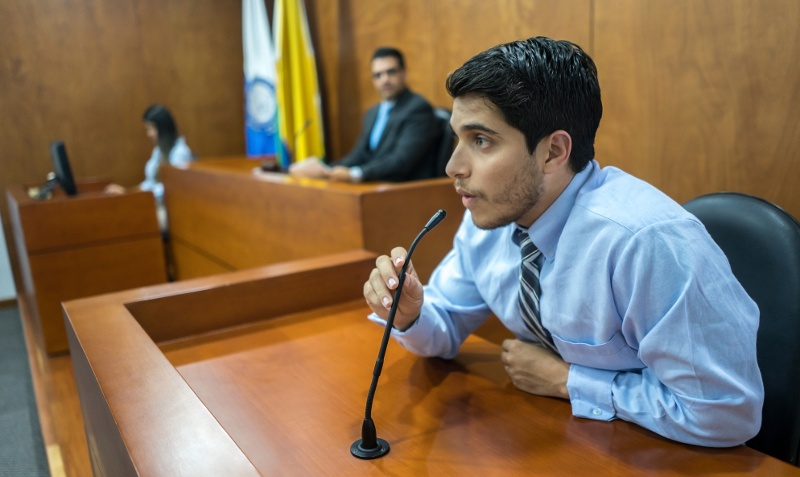Daubert Rides Again - Unreliable, Speculative Expert Opinions Still Don’t Fly Under Daubert
 Last summer Florida’s 4th DCA issued a generally helpful and instructive ruling, confirming the Florida legislature’s reinstatement of “Daubert” as the legal standard for admissibility of expert testimony. (Kemp v. State, 44 FLW D1974 – 7/31/19) While the opinion involves a criminal case, the decision and its basis are relevant, applicable, and important for civil cases.
Last summer Florida’s 4th DCA issued a generally helpful and instructive ruling, confirming the Florida legislature’s reinstatement of “Daubert” as the legal standard for admissibility of expert testimony. (Kemp v. State, 44 FLW D1974 – 7/31/19) While the opinion involves a criminal case, the decision and its basis are relevant, applicable, and important for civil cases.
Kemp v. State
Kemp considered the admissibility of a Florida Highway Patrol investigator – the State’s expert - in a vehicular manslaughter case. The criminal defendant in Kemp alleged he had “passed out behind the wheel,” causing his vehicle to hurtle down an I-95 exit ramp and strike the side of a sedan. Kemp’s speed was about 128 miles per hour at impact, and the sedan’s five occupants were killed. “Passing out” would not meet the “recklessness” requirement of Florida’s criminal vehicular homicide statute.
The State wanted to prove the defendant was conscious at the time of the accident and called the FHP trooper to testify Kemp used his brakes immediately prior to the accident. The trooper contended braking occurred because the car’s front dipped prior to impact. But he could not cite to specific areas of expertise or treatises in rendering that opinion. Also, the trooper only examined the vehicles’ property damage following the fatal accident.
The Fourth District overturned the lower court’s admission of this testimony, finding the testimony did not satisfy the benchmarks of reliability needed and set forth in Daubert. Under the Daubert standard, (codified in §90.702, Florida Statutes), a witness qualified as an expert may give an opinion relating to scientific, technical, or specialized knowledge if
- the testimony is based on sufficient facts or data;
- their testimony is the product of reliable principles and methods; and
- the witness has applied the principles and methods reliably to the facts of the case.
Factors which can affect reliability include
- whether the witness’ theory can be tested,
- whether the theory is subject to peer review,
- the known rate of error in a particular scientific technique,
- and general acceptance of the theory in the scientific community.
Legal Standards Were In Flux
Please recall the correct and applicable legal standard (“test”) for admissible expert testimony has been in flux for the last several years. But last May 2019, the Florida Supreme Court adopted the amendments to section 90.702 as procedural rules of evidence. [See In re Amendments to the Florida Evidence Code, No. SC19-107, May 23, 2019.]
This followed some years of uncertainty as to whether the Daubert or the Frye standard was the test for the admission of expert opinions. Under Frye, the expert witness offering the evidence at trial was required to establish the “general acceptance” of the underlying scientific principle and testing procedures.
Though many states and federal courts had already adopted Daubert, Florida spent many years flipping between the two, as cases and amendments to the evidence code were issued.
Daubert Testimony Considered Relevant and Reliable
The Daubert standard is arguably a more scientific, logical, and reliable approach for allowing expert witness opinion into evidence. The test is not the correctness of the expert’s conclusions but the “soundness of his methodology.”
Scientific-based testimony, as evidence admitted under Daubert, is not only relevant, but “reliable” – a key word throughout the statutory language, and the word that it seems ultimately overturned the admission of expert testimony in Kemp.
The Kemp court found the expert’s testimony to be “woefully insufficient” to establish the reliability of his methodology, for determining conscious and reckless conduct, per Daubert. The Kemp court also made it clear the experts’ opinion was not shown as based on sufficient facts or data.
As such the trooper’s “expert opinion” equaled little more than a suggestive, unsupported opinion.
So What Now?
Let us know if you’d like to discuss Kemp and its possible use and impact, on existing or future claims. The Kemp case (and its underlying principles) can be precedential for striking or limiting baseless, unfounded and/or speculative expert opinions.
- Authored by Joe Amos & Nick Robinson
Subscribe to Our Blog
Related Posts

Who Gets to Choose the Corporate Representative to Appear for the Corporation in a Deposition?


